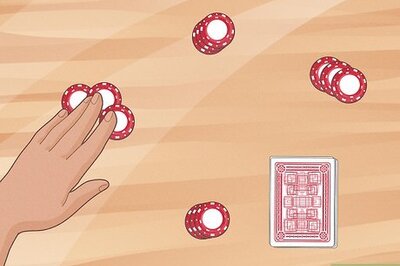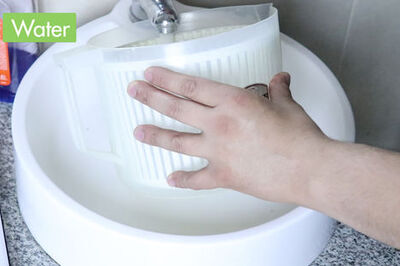
views
As it turns out, your smartphone can also prove to be more useful than for simply sending out WhatsApp messages or watching cat videos on YouTube. Patrick Schwab and Walter Karlen, researchers at the Institute for Robotics and Intelligent Systems ETH in Zurich, Switzerland seem to have found a way to put your smartphone to better use. The idea is to use the data collected by your smartphone and then let Artificial Intelligence (AI) have a crack at it, to analyze for any signs of the disease, and if at all, its progression.
In the research paper titled “Learning to Diagnose Parkinson’s Disease from Smartphone Data”, Schwab and Karlen detail how the data can be collected using an app for the smartphone, using tests designed for walking, voice, tapping and memory. These tests may need to be done up to three times a day.
Parkinson’s disease is a neurodegenerative disease that can affect a person’s movement as it progresses, as well as hamper speech, dexterity, and cognition. Doctors diagnose the Parkinson’s disease by performing a clinical assessment of the symptoms. However, misdiagnoses is very common, since the symptoms may not be prominent at the time of the clinical assessment. Parkinson's affects more than 6 million people worldwide, the research suggests.
They collected data from as many as 1,853 users, as a part of the mPower clinical trial. In the observational study, the participants were put through a series of tests. A walking test, for instance, will ask users to put their phone in the trouser pocket and then walk forward, turn around, and retrace their steps. A voice assessment tests asks users to say words such as “aaaah” into the phones’ microphone. A tapping test will ask users to alternatively tap two on-screen buttons. The memory test will require users to repeat a sequence of images illuminated on a grid. The results are then entered into two different neural networks, for generating a diagnostic score.
At present, there is a 15 percent chance of misdiagnosis of the disease using this method. However, as with most neural networks, they tend to get better as more and more data is fed into them. Needless to say that your phone isn’t going to replace your doctor anytime soon, but it is good to know that the modern day smartphones can do more than just be a nuisance.
Also Read | DeepMind AI Can Detect Over 50 Eye Diseases as Well as Your Doctor Can




















Comments
0 comment